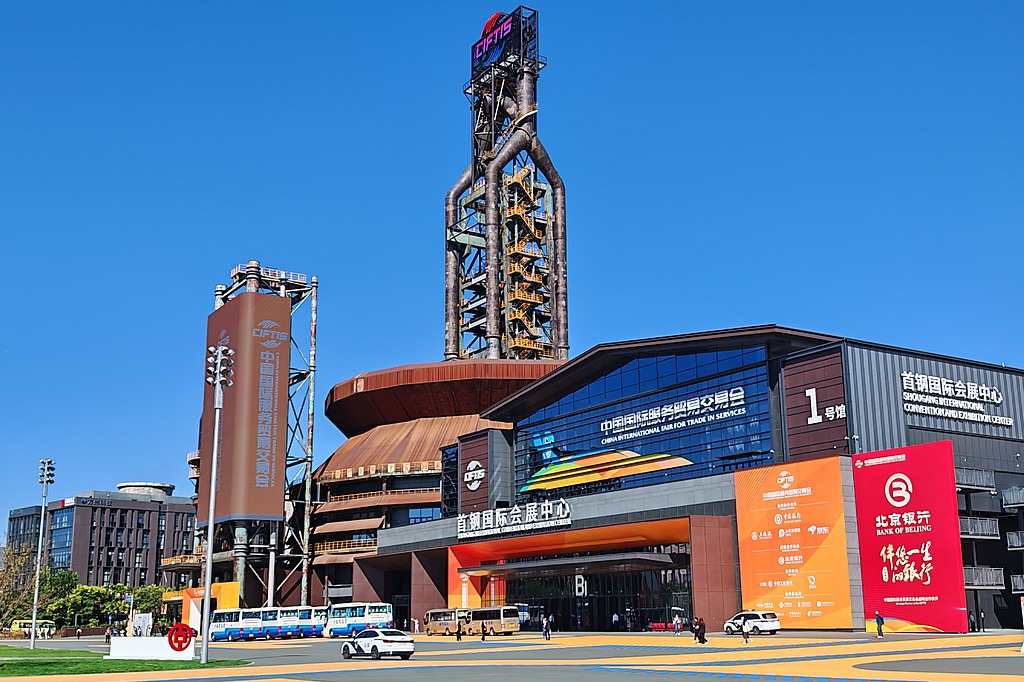Yiwu's output soars ahead of soccer tournament


With about nine months to go until the 2026 FIFA World Cup, traders in Yiwu — a vibrant trade hub in East China's Zhejiang province — have ramped up production and export of sports merchandise to meet surging global demand.
Business people in Yiwu have tapped into the growth potential of the upcoming soccer tournament, which will be cohosted by the United States, Canada and Mexico in June next year.
Wu Xiaoming, general manager of Yiwu Aokai Sports Goods Co Ltd, recently met with a Mexican merchant at the Yiwu International Trade Market, the world's largest hub for small commodities. The Mexican buyer placed an order for a batch of sports products, which will soon be shipped overseas.
"Driven by the 2026 FIFA World Cup, sales of our sports products have been booming lately. We produce around 4,000 footballs per day, and there is practically no inventory left. So far this year, our company has manufactured and sold over 700,000 ball products," Wu said.
Of the products made by Aokai, 70 percent belong to its independent brand MEIK, which serves as the key force powering the company's efforts to grow its presence in global markets. MEIK brand products have been mainly exported to Latin America and Europe, with footballs accounting for 90 percent of total exports.
Wu said he believes this is just the beginning of the peak season. As the traditional peak period for football-related purchase arrives, the fourth quarter is likely to see an increase in orders, with an additional restocking surge anticipated before the World Cup kicks off.
Despite growing uncertainties in the foreign trade environment, merchants in Yiwu have indicated strong resilience.
In the first seven months of this year, Yiwu's exports of sporting goods and equipment reached 6.78 billion yuan ($950 million), up 16.8 percent from a year earlier. Of this, exports to countries including the US, Canada and Mexico totaled 1.88 billion yuan, rising by 10 percent year-on-year, according to data from Yiwu Customs.
From the World Cup and the Olympic Games to the US presidential elections, Yiwu-made small commodities have long earned the nickname of being able to "forecast results", as the output of certain goods mirrors market and consumer demand.
"The export markets for Yiwu's commodities is highly diversified, and Yiwu has trade relations with more than 230 countries and regions. Notably, exports to economies participating in the Belt and Road Initiative have seen rapid growth," said Fu Yifu, a special researcher at Su Merchants Bank based in Nanjing, Jiangsu province.
"Thanks to its diversified market structure, Yiwu has effectively mitigated risks and reduced its reliance on any single market, providing strong support for the resilience of its foreign trade," Fu said.
He added that Yiwu has a highly integrated supply chain and offers a wide range of product categories. Local merchants have invested heavily in research and development, upgrading many small commodities to smart, eco-friendly products with high added value. They have successfully tapped into overseas markets by offering products of high quality and lower costs.
According to projections by the Yiwu Sports and Fitness Products Industry Association, during the 2022 FIFA World Cup in Qatar, Yiwu-made products accounted for approximately 70 percent of all global tournament-related derivatives once the 32-team group stage was confirmed.
Meanwhile, amid the busy sales period for World Cup derivatives this year, Yiwu Customs organized officer visits to the Yiwu International Trade Market, where they held a series of legal education activities focused on intellectual property protection.
"Besides providing visual explanations about the World Cup intellectual property protection, Yiwu Customs has also developed and launched an artificial intelligent assistant and merchants can search related issues online," said Sun Yiwen, secretary to the president of the Yiwu Brand Development Promotion Association.



































